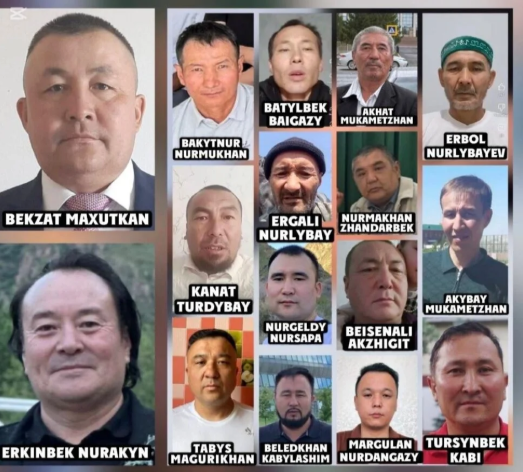UN chief Guterres calls Maduro amid Venezuela’s human rights crisis
- info775148
- 24. 9. 2024
- Minut čtení: 4
By Oz Arab Media - Weekly Blitz
September 24, 2024

Credits @FFHR.CZ
On September 20, United Nations Secretary-General Antonio Guterres engaged in a pivotal phone conversation with Venezuelan President Nicolás Maduro, marking their first direct communication since Venezuela’s highly disputed July 28 presidential election. The call comes amid ongoing political turmoil and mounting accusations of human rights violations in the South American nation. The conversation, which lasted 15 minutes, addressed the fragile political situation in Venezuela, with Guterres expressing deep concerns about reports of post-election violence and violations of human rights.
The electoral landscape in Venezuela remains contentious. President Maduro claimed victory in the July 28 election, securing what the regime-aligned CNE electoral council reported as 52 percent of the votes. However, the opposition, led by presidential candidate Edmundo González Urrutia, contested the results, asserting that González garnered more than 60% of the vote. The opposition’s demands for transparency, including a detailed vote breakdown from the CNE, have gone unanswered.
The election outcome was met with widespread condemnation, both domestically and internationally. Many Venezuelans, along with over 50 countries, have refused to recognize Maduro’s re-election, citing concerns over the integrity of the electoral process. In the immediate aftermath of the polls, violence erupted across the country. Protests against the disputed results were met with a harsh crackdown by Venezuelan security forces, leaving at least 27 people dead and 192 injured, according to official reports. Furthermore, approximately 2,400 people were arrested during the demonstrations, many of whom remain detained without due process.
The brutal response to dissent has sparked outrage globally, with human rights organizations raising alarm over the Venezuelan government’s handling of protests and the treatment of political dissidents. Reports of arbitrary detentions, excessive use of force, and torture of prisoners have drawn scrutiny from international bodies, including the United Nations Human Rights Council.
During the call, Secretary-General Guterres voiced his concerns over these developments, stressing the need for Venezuela to uphold human rights and adhere to international norms. According to UN spokesman Stéphane Dujarric, Guterres emphasized the importance of resolving political disputes peacefully and through genuine and inclusive dialogue. He reiterated the UN’s stance on the necessity of political reconciliation in Venezuela, encouraging all parties to engage in constructive conversations aimed at restoring democratic order and stability in the country.
While Guterres took note of Maduro’s position on the election and subsequent events, he underscored the UN’s commitment to monitoring the human rights situation closely. This call signifies a continued effort by the United Nations to mediate and promote peaceful resolutions in conflict-ridden countries.
In his response to the UN Secretary-General, President Maduro reaffirmed his commitment to combating what he described as “fascism” and “the devil,” terms he frequently uses to characterize the opposition forces that seek his ouster. Maduro’s rhetoric underscores his narrative of defending Venezuela against external and internal threats, which he often claims are driven by imperialist powers and opposition leaders seeking to destabilize the country.
Maduro, who has been in power since 2013, has consistently blamed foreign interference, particularly from the United States and Europe, for Venezuela’s ongoing crises. He maintains that his government is under siege by opposition movements supported by external actors aiming to undermine his rule. This framing of events is central to his regime’s propaganda, allowing him to justify heavy-handed actions against protestors and political opponents.
However, Maduro’s claims of protecting Venezuela’s sovereignty have done little to quell the growing dissatisfaction among Venezuelans who continue to face severe economic hardship, food shortages, hyperinflation, and widespread poverty. The humanitarian crisis in the country has led millions of Venezuelans to flee, seeking refuge in neighboring countries, further straining regional stability.
On the same day as the Guterres-Maduro phone call, seven American nations-Argentina, Canada, Chile, Ecuador, Guatemala, Paraguay, and Uruguay-called on the United Nations Human Rights Council in Geneva to investigate the alleged human rights violations in Venezuela. In a joint statement, these countries expressed their deep concern over the intensification of repression following the elections and urged the UN to take swift action.
Ecuador’s Foreign Ministry, which led the initiative, noted that the situation in Venezuela could potentially constitute crimes against humanity. The seven nations have made an urgent appeal for an investigation into the “grave violations” of human rights committed by Maduro’s regime, calling on Caracas to halt the repression and restore basic democratic freedoms.
This move aligns with ongoing efforts to hold the Venezuelan government accountable on the international stage. In recent years, multiple reports from the UN, the Organization of American States (OAS), and other human rights organizations have documented widespread abuses, including extrajudicial killings, disappearances, and the persecution of political opponents under Maduro’s leadership.
Venezuela’s political and humanitarian crises show no signs of abating. With the opposition leader Edmundo González Urrutia now seeking asylum in Spain, and Maduro consolidating power domestically, the prospects for a peaceful resolution appear bleak. However, the international community remains engaged, with growing pressure for the UN to take more robust action against the Venezuelan government.
For now, Guterres’ call for inclusive dialogue offers a glimmer of hope that diplomatic efforts may still lead to a resolution. Whether Maduro’s regime will engage in genuine discussions with the opposition remains uncertain, especially as it continues to deny the legitimacy of opposition claims and dismisses international criticism.
In the coming months, the UN and other international actors will likely intensify their focus on Venezuela, as the country’s political future hangs in the balance. The stakes are high, not only for the Venezuelan people but also for the broader Latin American region, which continues to grapple with the ripple effects of Venezuela’s ongoing instability.
Source: ozarab.media









Komentáře